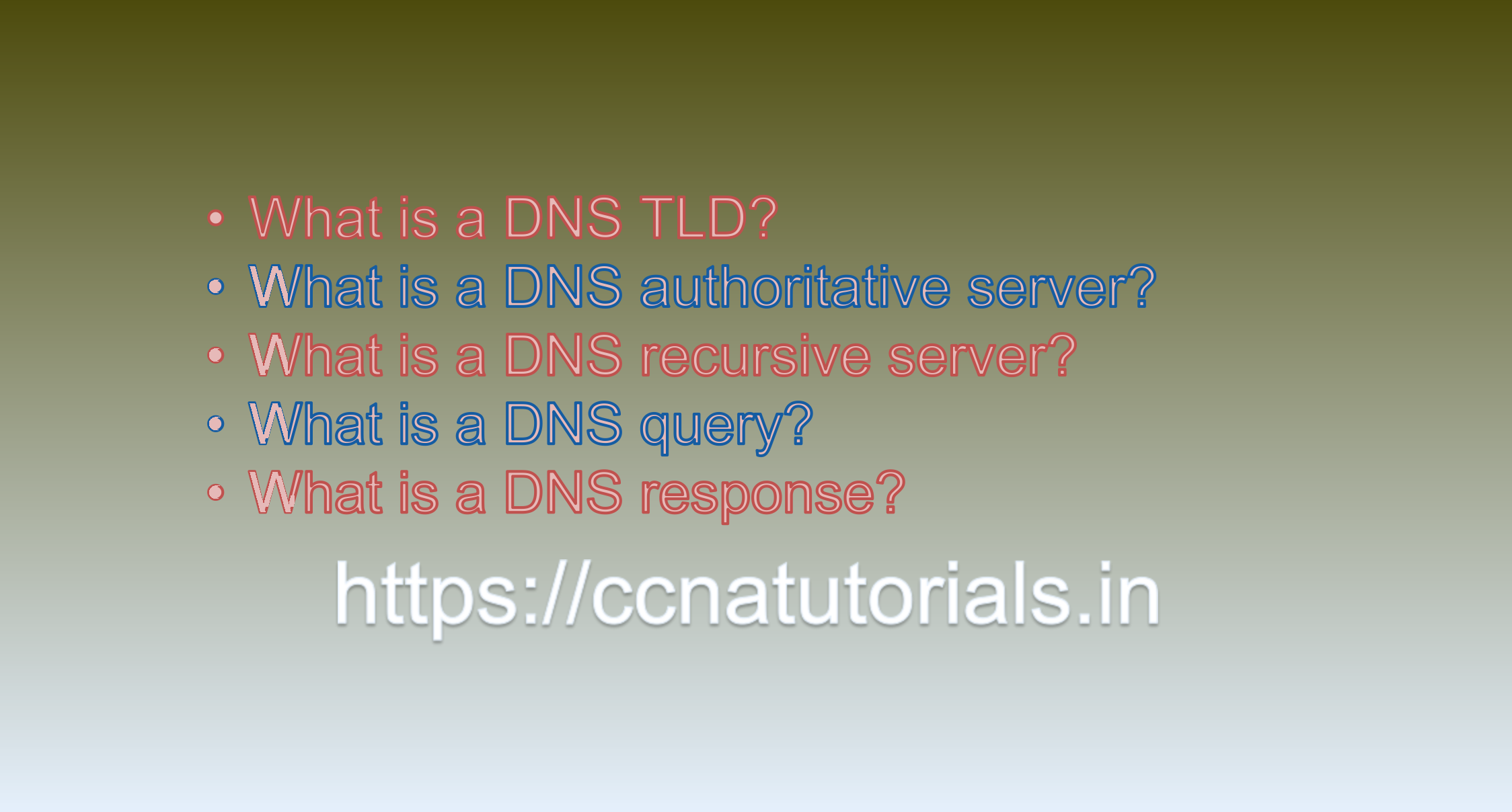Contents of this article
In this article, I describe some CCNA sample questions for practice before appearing in the CCNA 200-301 exam. The following questions are basic questions and related to the CCNA sample questions set 21. There are multiple sample questions set on this website for prior practice online. All questions are described with relevant answers. You can take the following questions and answer as reference for CCNA 200-301 exam. You may also need to do more practice with other websites and books to practice the CCNA sample questions set 21.
Question 1. What is a DNS TLD?
DNS TLD stands for Domain Name System Top-Level Domain. It is the highest level of the domain name system and represents the last part of the domain name after the final dot, such as .com, .org, .net, .edu, etc.
The DNS TLDs are managed by the Internet Assigned Numbers Authority (IANA) and are divided into two main categories: generic top-level domains (gTLDs) and country-code top-level domains (ccTLDs).
The gTLDs are used globally and can be registered by anyone, while ccTLDs are assigned to specific countries or territories and are managed by the respective national governments or organizations.
The DNS TLDs play an important role in directing Internet traffic and help to identify the type of website or organization associated with a particular domain name. This is the answer to question 1 of CCNA sample questions set 21.
Question 2. What is a DNS authoritative server?
A DNS authoritative server is a DNS server that contains the original and definitive DNS records for a domain. It is responsible for responding to DNS queries for the domain it is authoritative for. The authoritative server maintains a list of resource records, which include information such as IP addresses and domain names, that are associated with the domain. When a DNS resolver needs to resolve a domain name to an IP address, it sends a query to the authoritative server for the domain. The authoritative server then responds with the correct information, which the resolver uses to complete the resolution process. This is the answer to question 2 of CCNA sample questions set 21.
Question 3. What is a DNS recursive server?
A DNS recursive server, also known as a DNS resolver, is a server that receives DNS queries from clients and attempts to resolve the requested domain name into an IP address. If the recursive server has the requested DNS record in its cache, it returns the IP address to the client. Otherwise, the recursive server queries other DNS servers on behalf of the client until it receives the requested information, and then returns it to the client. A DNS recursive server can be operated by an internet service provider (ISP), a company, or a third-party provider such as Google or Cloudflare. This is the answer to question 3 of CCNA sample questions set 21.

Question 4. What is a DNS query?
A DNS query is a request for information from a DNS resolver or client to a DNS server, seeking to obtain the IP address associated with a domain name or vice versa. When a user types a domain name into a web browser, the browser sends a DNS query to a DNS resolver asking for the IP address associated with that domain name. The DNS resolver then forwards the query to a DNS server, which provides the IP address in response. DNS queries can also be used to obtain other types of information, such as mail server or text record (TXT) information. This is the answer to question 4 of CCNA sample questions set 21.
Question 5. What is a DNS response?
A DNS response is the answer provided by a DNS server in response to a DNS query. When a DNS resolver sends a query to a DNS server to resolve a domain name to an IP address, the DNS server responds with the corresponding IP address or an error message if the domain name cannot be resolved. The DNS response contains the requested information along with additional data such as TTL (Time To Live) values, which determine how long the data should be cached by the resolver or other DNS servers. The DNS response may also include other types of DNS records related to the requested domain name. This is the answer to question 5 of CCNA sample questions set 4.
Conclusion for CCNA sample questions set 21
In this article, I described 5 questions with answers related to CCNA 200-301 exam. I hope you found these questions helpful for the practice of the CCNA 200-301 exam. You may drop a comment below or contact us for any queries related to the above questions and answers for CCNA 200-301. Share the above questions If you found them useful. Happy reading!!






